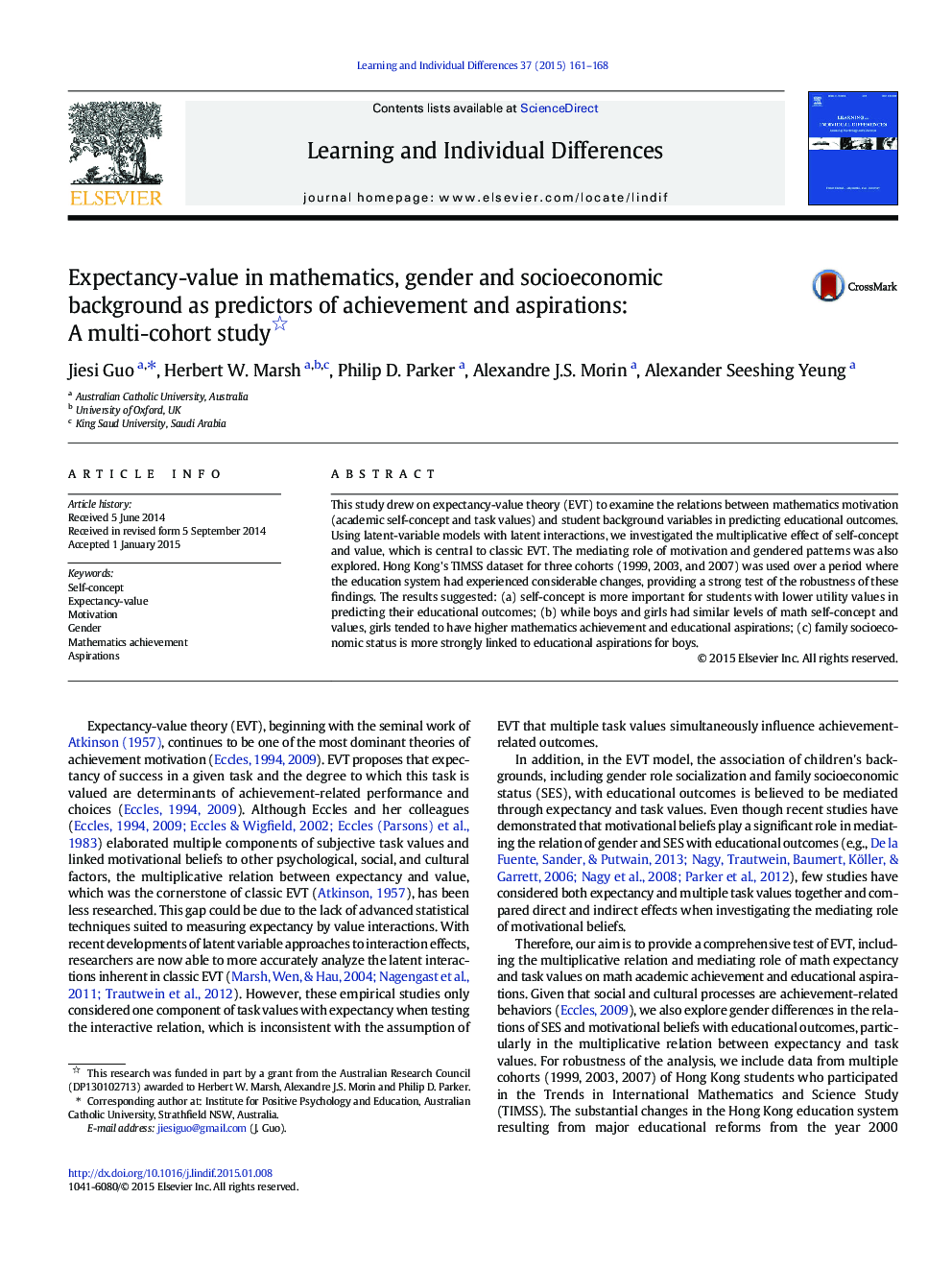| Article ID | Journal | Published Year | Pages | File Type |
|---|---|---|---|---|
| 6844932 | Learning and Individual Differences | 2015 | 8 Pages |
Abstract
This study drew on expectancy-value theory (EVT) to examine the relations between mathematics motivation (academic self-concept and task values) and student background variables in predicting educational outcomes. Using latent-variable models with latent interactions, we investigated the multiplicative effect of self-concept and value, which is central to classic EVT. The mediating role of motivation and gendered patterns was also explored. Hong Kong's TIMSS dataset for three cohorts (1999, 2003, and 2007) was used over a period where the education system had experienced considerable changes, providing a strong test of the robustness of these findings. The results suggested: (a) self-concept is more important for students with lower utility values in predicting their educational outcomes; (b) while boys and girls had similar levels of math self-concept and values, girls tended to have higher mathematics achievement and educational aspirations; (c) family socioeconomic status is more strongly linked to educational aspirations for boys.
Related Topics
Social Sciences and Humanities
Psychology
Developmental and Educational Psychology
Authors
Jiesi Guo, Herbert W. Marsh, Philip D. Parker, Alexandre J.S. Morin, Alexander Seeshing Yeung,
